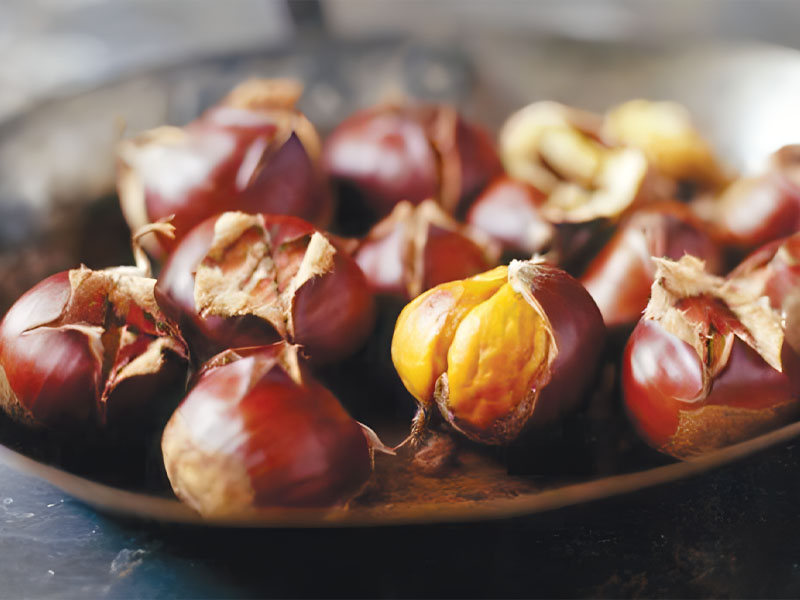Abundance and scarcity: An anthropological approach
Issue 29

Food varies according to people, culture and environment. French anthropologist Lévi-Strauss created a food triangle, classifying food as raw, cooked or rotten. His Culinary Triangle is an important reference.
His Triangle made it possible to understand the phenomenon of food and its position in communities’ daily lives. This study offers us the opportunity to familiarise ourselves with the Humama tribe and features of its culture, most of which have disappeared because of the homogenising effects of globalization.
In the first half of the 20th century, there was clear evidence of traditional food in Bur Humama and other rural communities in Tunisia. These communities were isolated from the big cities, where food changed rapidly as a result of economic and cultural pressures and the influences of French colonisation.
Food is associated with material culture. We can differentiate between the poor and the rich by the ingredients they use. In this anthropological comparison, we used Lévi-Strauss’s Culinary Triangle, oral sources in the form of interviews with members of the Humama tribe, and written resources and references.
During the first half of the 20th century, especially in times of scarcity, the Humama’s cuisine was simple and natural. The cuisine of the poor and the rich differed only in terms of ingredients, and these differences were less obvious in years of abundance.
Food is related to the quality of the available natural resources and to external influences that negatively affect local resources. It is important to emphasise the impact of the economic and social changes in Tunisia, and in the world as a whole, including the change in the manufacture of farm products and their distribution, as well as the impact of imports, which greatly reduced the advantages of local food. These changes made cooking styles more similar; it is now possible to make any kind of food at any time of year. This substantiates Fernand Braudel’s concept of material civilisation.
The importance of food lies in its relationship to the social and cultural. We must look at the social aspects of shared meals; when people share ‘water and salt’ at parties, weddings and funerals, it helps to establish and strengthen friendships and settle disputes. The cultural aspects of this type of eating are highlighted in literature, customs, traditions, rituals and culinary practices, as well as popular proverbs and stories.
Abdul Karim Barahmi
Tunisia


































































